Cyberpunk 2077 PC Trick to Improve Performance; Fan Patches Available
The launch of Cyberpunk 2077 was bumpy. Players are complaining about the game's technical condition - not only on consoles, but also on PC, the game's optimization leaves something to be desired. Fans decided to take matters into their own hands and fix as much as they can by themselves.
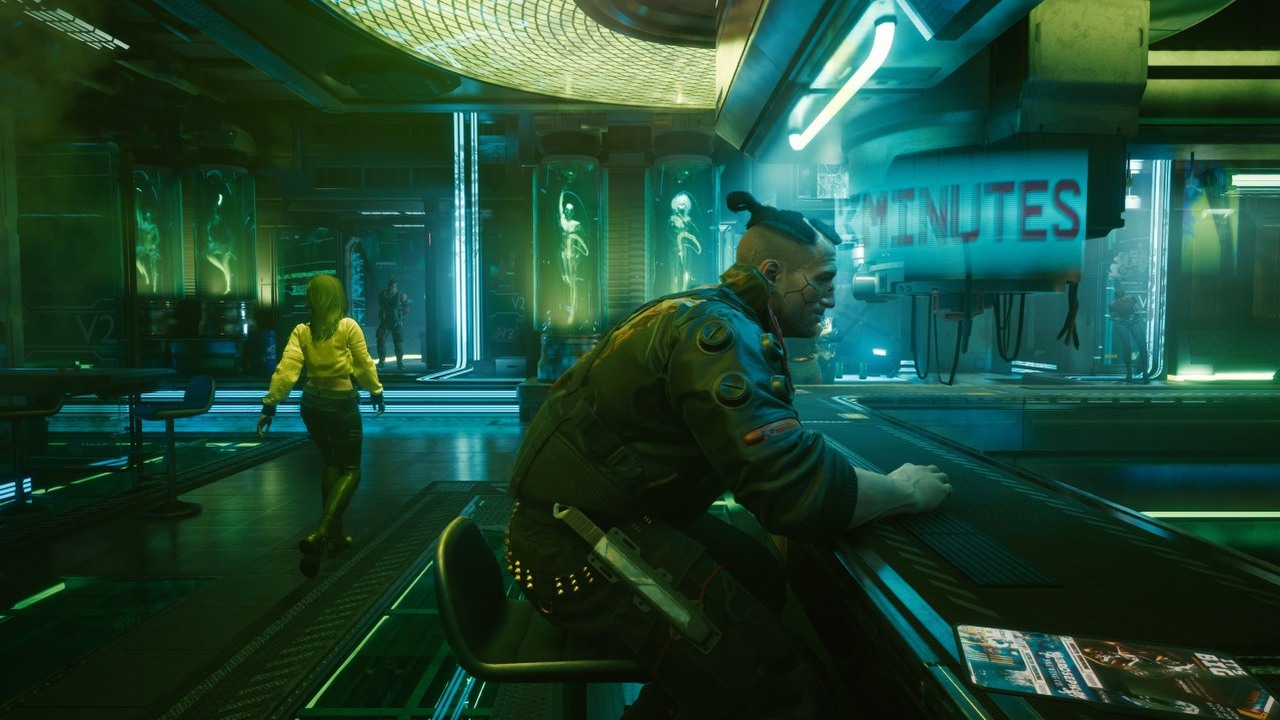
Cyberpunk 2077 has gathered great reviews on PC, but the game's release has a bittersweet taste. Not only the console versions are plagued by problems, but the PC edition is far from perfect. Apart from the bugs and common, seemingly random crashing to desktop, the optimization leaves much to be desired. Frame rate drops, often unjustified, and stuttering are frequent comments from users on forums. An improvement can be seen after installing patch 1.04 from CD Projekt RED, but it doesn't solve all the problems, so fans decided to take a look at the game's configuration files and find some ways to improve performance in Cyberpunk 2077 by themselves.
A trick for improving performance in Cyberpunk 2077
After the fans analyzed the case, it turned out that Cyberpunk 2077 ignores SMT technology on AMD processors, without using multithreading, which affects the game's performance. This is the equivalent of Hyper Threading known to Intel CPU owners.
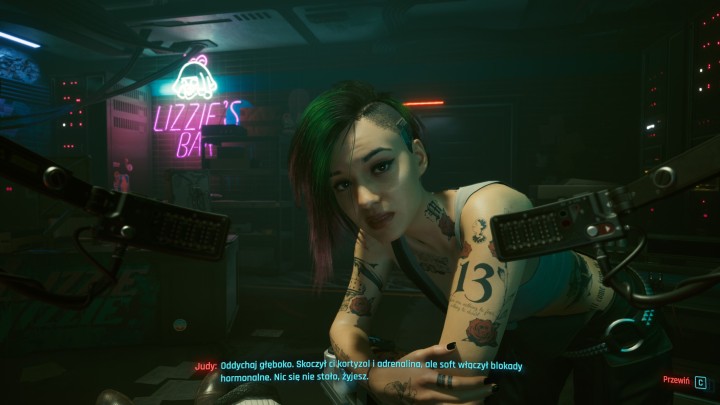
Using AMD Ryzen 5 2600 as an example, CPU usage in the game normally only reaches 30-50% at 2560 x 1440 pixels. After the changes introduced by the plugin, it increases to 50-85% (!), which may or may not increase the number of fps. We checked it on the said CPU and although the FPS value did not increase significantly, the gaming comfort did, due to more stable performance and the elimination of so-called stutters, which occurred mainly in camera movements while driving around the city. However, the changes are dependent on our CPU. There is no shortage of users on the forums, who have observed an increase in the number of fps by a few or even a dozen. The biggest difference is observed mainly by the owners of 6- and 8-core chipsets, but not necessarily only in places typical for CPUs.
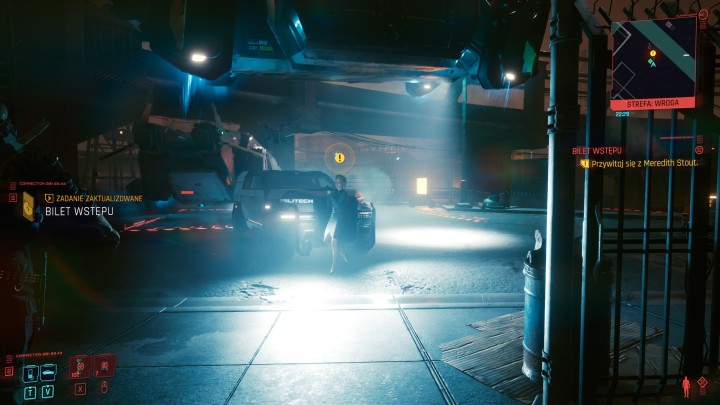
However, this is not the end of changes introduced by a mod pack prepared by user yamashi. One Reddit user reported that the file "memory_pool_budgets" found in the "config" folder reveals that the PC version has the same values as the old generation console version. Therefore, only 1.5 GB of RAM for CPU and 3 GB of VRAM for GPU is allocated to the processor. Increasing these values to at least half the amount of our available operating memory (e.g. 8192 MB for 16 GB) and the maximum amount of memory offered by our GPU (e.g. 8 GB for 8 GB on GeForce or Radeon) can also result in better performance. The plug-in automatically changes these values and no manual adjustments are required in the file mentioned on Reddit.
In our opinion, Cyberpunk 2077 uses these resources quite well, despite these settings, but we have decided to test this change, regardless of the others made by the mod. On our PC, equipped with AMD Ryzen 5 2600, 16 GB of RAM and Nvidia GeForce RTX 3060 Ti 8 GB, it didn't bring any benefits in 1440p resolution, but there is no shortage of positive voices in the forums, so it certainly won't hurt to check on our hardware.
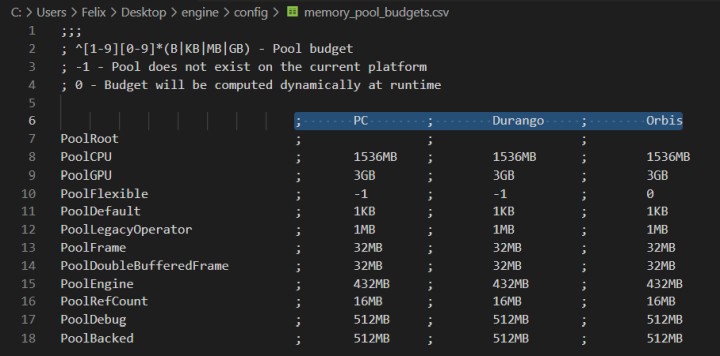
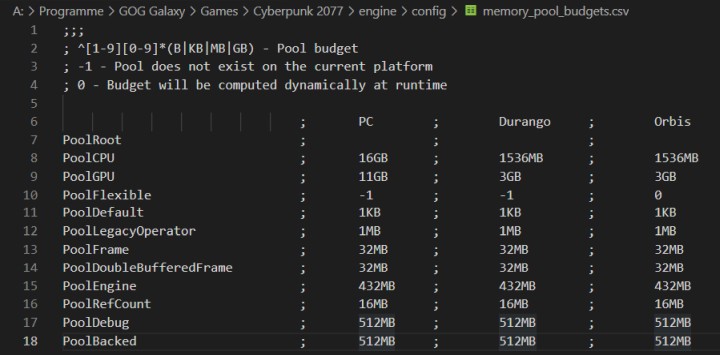
The plugin also reduces some negative effects related to the Spectre gap. You can download a complete mod pack, which includes all the discussed fixes, from our servers (link below). The files should be extracted to the bin/x64 folder (where Cyberpunk2077.exe is located). In case of negative effects (e.g. crashing to desktop and errors) it is enough to remove them to undo the changes.
Cyberpunk 2077 - optimal visual settings
As we announced even before the release, Cyberpunk 2077 offers a lot of customization options. Which options are the most straining on the components and which are the least? How do we get the best visuals/performance ratio? The Digital Foundry team at Eurogamer UK has prepared a separate video which offers the following settings.
Cyberpunk 2077 - optimal settings without ray-tracing:
- Model quality in local shadows - high
- Quality of local shadows - high
- Range of local shadows - high
- Resolution of cascade shadows - average
- Resolution of volumetric fog - ultra (1080p); high (1440p); medium (4K)
- Quality of volumetric clouds - average
- Maximum number of dynamic decks - ultra
- Reflections in the screen space - low or high (if you do not like "grain")
- Sub-surface lighting quality - high
- Ambient occlusion - low
- Colour precision - average
- Mirror quality - high (1080p and 1440p); medium (4K)
- Level of detail - high
- Dynamic Fidelity FX CAS: disabled
Cyberpunk 2077 - optimal ray tracing settings:
- Reflections - on or off
- Shadows from the sun - excluded
- Lighting - medium quality
The game has been tested by an Eurogamer editor on Intel Core i9-10900K, 32GB of RAM and Nvidia GeForce RTX 3090, but the above settings are optimal in terms of visual quality to performance ratio and we don't need such a powerful PC to enjoy satisfactory performance, especially when playing in 1440p or 1080p, let alone at lower resolutions.
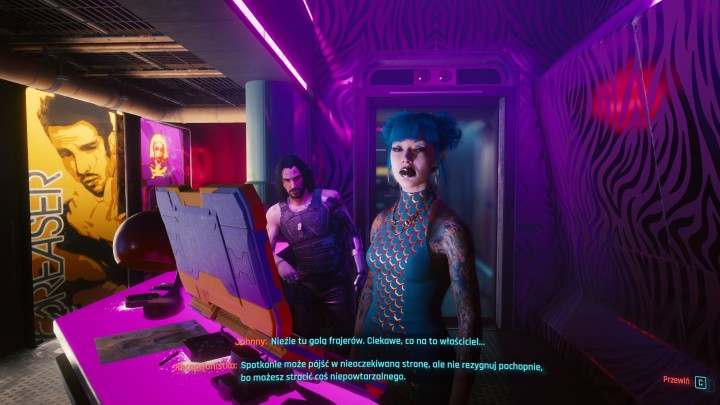
The exception is ray-tracing, which looks great in Cyberpunk 2077, but involves a huge drop in frame rate and even RTX 3090 can't handle the maximum settings without the DLSS, which we recommend to use only in "quality" and "balanced" modes. Other options blur the image too much.
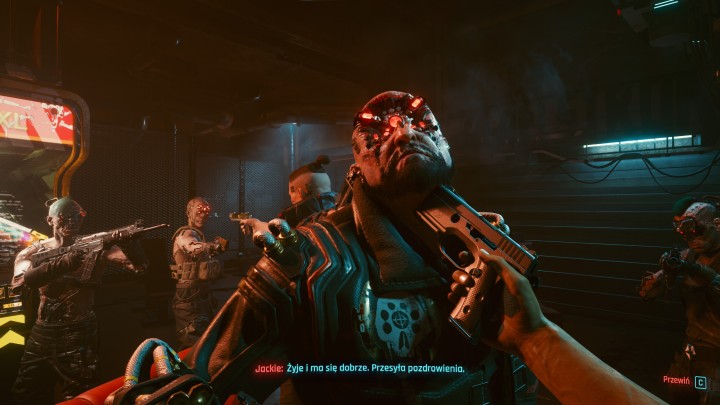
The most GPU-heavy setting are are: cascade shadow resolution (we recommend medium level) and volumetric fog (we recommend lowering to medium), quality of volumetric clouds (here you can even consider switching off) and especially screen space reflections (we recommend reducing at least to high or low for weaker GPUs). The rest of the settings also affect the smoothness of the animation, but apart from maybe still rare mirrors or occlusion of the environment, only reducing a few at a time can pay off, only, unfortunately, at a significant price of visual quality.
Contrary to the pre-release fears, Night City is alive, and in some places, we can see a very large crowd, which in turn is quite a challenge for CPU. Cyberpunk 2077 not only uses heavily the GPU but also a good multithreaded processor is needed. If your hardware gives up in crowded neighborhoods such as the market in Little China, you might think about reducing crowd density to "medium" or "low", which should result in extra frames and/or smaller drops in animation. With older and less powerful CPUs, even this may not help.
You have to find the golden mean and choose the rest of the settings for your PC - we hope that Eurogamer's material will help you. We also hope that CD Projekt RED in the next updates will not only "fix" bugs, but also improve performance, because - as shown by the fans - there is something to improve.
Cyberpunk 2077 was released on PC, PlayStation 4 and Xbox One on December 10, 2020. On PS5 and Xbox Series X/S, the game works thanks to backward compatibility - you'll have to wait until 2021 for a full release.
- Cyberpunk 2077 - PerformanceOverhaulCyberpunk v.0.6.1 - Game mod
- Performance Overhaul Cyberpunk on github (frequent updates)
- Cyberpunk 2077 Review - Samurai, You've Got a Great RPG to Play!
- Cyberpunk 2077 - game guide
- Cyberpunk 2077 - official website
- Cyberpunk 2077 is still a gold mine for CD Projekt Red. It already beat The Witcher 3 and isn't slowing down
- 5 years after its release, Cyberpunk 2077 is making millions again. That's thanks to one risky decision
- Cyberpunk 2077 may get more new features. CD Projekt Red pointed out an important date that's coming up soon
0
Latest News
- End of remote work and 60 hours a week. Demo of Naughty Dog's new game was born amid a crunch atmosphere
- She's the new Lara Croft, but she still lives in fear. Trauma after Perfect Dark changed the actress' approach to the industry
- „A lot has become lost in translation.” Swen Vincke suggests that the scandal surrounding Divinity is a big misunderstanding
- Stuck in development limbo for years, ARK 2 is now planned for 2028
- Few people know about it, but it's an RPG mixing Dark Souls and NieR that has received excellent reviews on Steam, and its first DLC will be released soon


